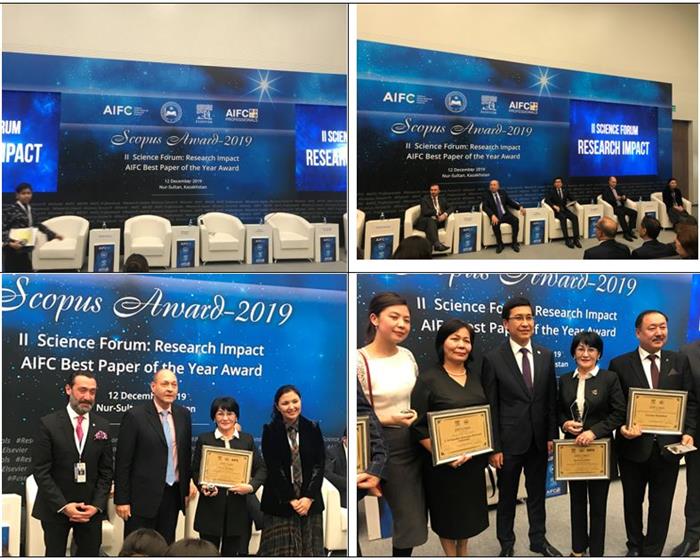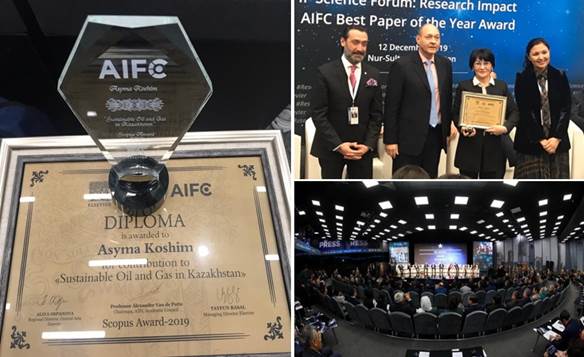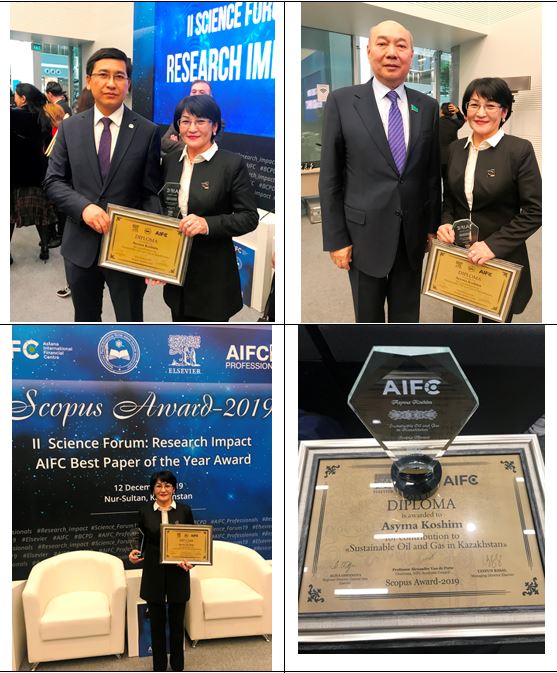Scopus Award 2019
The winners of the Scopus Award 2019 were announced yesterday in Astana. The award, established by the largest scientific publishing house Elsevier, is awarded to the most cited and published scientists in Europe, Asia and Latin America. This year, the Scopus Award in the nomination “Best Paper of the Year” was awarded to a group of scientists from Kazakhstan and the UK consisting of Asim Koshim (KazNU named after Al-Farabi), Marat Karataev (University of Nottingham), Michelle Clark (University of Nottingham) and William Knock (University of Cambridge). The prize was awarded for studying the theoretical potential of using biomass from agricultural waste for energy production using the so-called “biomass co-firing technology” (co-burning of coal and biomass). The article was published in the journal Advance in Geoscience, in the quartile category one (link to the article below).
Established by Elsevier, the largest science publisher, the Scopus Award was first presented in China in 2004. Since then, prizes have been awarded to the most published and cited authors in Latin America, Asia and Europe. As the organizers of the award indicate, the Scopus Award is an objective indicator of scientific achievements: "the contribution of an individual scientist to the development of science is measured precisely by the citation index - thus, subjective assessment is excluded."
We are grateful to the Al-Farabi Kazakh National University's Faculty of Geography and Environmental Management, Nazarbayev University's Center for Energy Studies, KEGOC, the National Agency for Statistics, the British Council in Kazakhstan and the Newton Al-Farabiza program to help collect materials and data for our article. We also thank the authors whose materials were used in writing this article.











